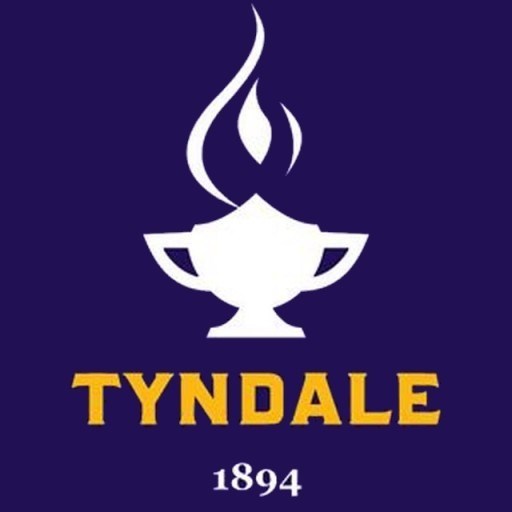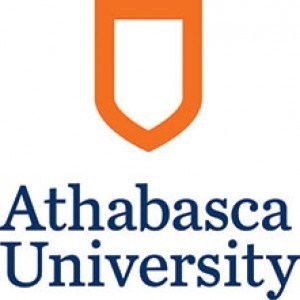Philosophy at Tyndale University College offers students a rigorous and comprehensive exploration of the fundamental questions about human existence, knowledge, ethics, and the nature of reality. This program is designed to develop critical thinking, logical reasoning, and analytical skills through the study of classical and contemporary philosophical texts, theories, and debates. Students will engage with key areas such as metaphysics, epistemology, ethics, political philosophy, and the history of philosophy, fostering a deeper understanding of both historical and modern perspectives. The curriculum emphasizes the integration of faith and reason, encouraging students to explore how philosophical inquiry intersects with Christian worldview and biblical principles. Throughout the program, students will have opportunities to participate in thought-provoking discussions, write analytical essays, and undertake research projects that challenge their assumptions and expand their worldview. The faculty comprises experienced scholars dedicated to mentoring students and helping them articulate their ideas clearly and convincingly. Graduates of the Philosophy program at Tyndale are well-equipped for careers in ministry, education, law, public service, or further graduate studies in philosophy, theology, or related fields. The program aims to foster a lifelong passion for learning and a commitment to ethical living, preparing students to contribute thoughtfully and responsibly to society. With a strong emphasis on academic excellence and spiritual formation, the Philosophy program at Tyndale provides a unique environment where faith and reason complement each other, equipping students to think deeply and act wisely in a complex world.
Program Overview:
The Bachelor of Arts in Philosophy at Tyndale University College offers students an in-depth exploration of fundamental questions about existence, knowledge, ethics, and the nature of reality. Designed to develop critical thinking, analytical skills, and a clear understanding of philosophical traditions, this program prepares students for a wide range of careers or further academic pursuits. The curriculum combines core courses in classical and contemporary philosophy with opportunities for specialized study in ethics, logic, metaphysics, epistemology, and philosophy of religion. Students will engage with texts from influential philosophers such as Plato, Aristotle, Kant, Nietzsche, and contemporary thinkers, fostering meaningful discussions and encouraging rigorous analysis.
Throughout the program, students are challenged to examine their own beliefs and assumptions while exploring diverse worldviews. The curriculum emphasizes both the historical development of philosophical ideas and their application to modern issues, including ethics in technology, social justice, and environmental concerns. Applied assignments and research projects are integrated into coursework to enhance practical understanding and foster skills in writing, argumentation, and presentation. Small class sizes ensure personalized attention and active participation, enabling students to develop their intellectual abilities in a supportive environment.
The Philosophy program at Tyndale also offers opportunities for interdisciplinary learning, integrating insights from theology, psychology, and the social sciences. Students are encouraged to participate in seminars, conferences, and community engagement activities that deepen their understanding and broaden their perspectives. The program aims to prepare graduates for diverse careers including education, law, public policy, ministry, counseling, and further graduate studies.
Students may also have access to resources such as the Tyndale library's philosophy collections, academic journals, and digital repositories. Mentorship from experienced faculty members provides guidance tailored to each student’s interests and academic goals. By the end of the program, graduates are equipped with a rich philosophical foundation, critical reasoning skills, and ethical awareness that serve them well in an increasingly complex and interconnected world.
The Bachelor of Arts in Philosophy at Tyndale University College requires students to complete a total of 120 credit hours, including core courses, elective courses, and a capstone project. The program begins with foundational courses in Western philosophical thought, critical thinking, and introductory logic, designed to equip students with essential analytical skills. Students then progress to more specialized topics such as ethical theory, philosophy of religion, metaphysics, epistemology, and the history of philosophy, exploring the major schools of thought from ancient to contemporary times. The curriculum emphasizes the development of critical reasoning, argumentative skills, and theological integration, consistent with Tyndale’s Christian worldview. In addition to the philosophy-specific courses, students are encouraged to complete coursework in related disciplines such as theology, history, and literature to enrich their understanding of philosophical contexts. Practical components include seminars and discussions aimed at fostering debate and interpretation skills. Students are required to complete a senior seminar or capstone project that demonstrates their ability to engage critically with philosophical texts and ideas. The program also includes internships or community engagement opportunities designed to apply philosophical reasoning in real-world settings. To graduate, students must maintain a minimum cumulative GPA of 2.0 and complete all required courses within the standard program timeline. Electives can be chosen from a range of disciplines, allowing students to tailor their studies to specific interests such as ethics, political philosophy, or philosophy of science. The program aims to prepare graduates for careers in education, ministry, law, counseling, or further graduate studies in philosophy, theology, or related fields.
Financing for the Philosophy program at Tyndale University College is structured through a combination of federal and provincial government student aid, institutional scholarships, bursaries, and private funding opportunities. Prospective students are encouraged to explore various sources of financial support to help offset tuition fees and living expenses. Federal student loans and grants are available for eligible students, which can significantly reduce the financial burden. The Ontario Student Assistance Program (OSAP) provides loans and grants for residents of Ontario pursuing post-secondary education, including programs at Tyndale University College. In addition to government aid, Tyndale University offers institutional scholarships based on academic achievement, leadership qualities, and financial need. These scholarships are awarded annually and can cover partial or full tuition costs. Bursaries are also available for students demonstrating financial hardship, further assisting in the affordability of the program. Students are advised to complete the Free Application for Federal Student Aid (FAFSA) and the Tyndale Financial Aid application forms to be considered for these funding opportunities. Private donors and organizations occasionally provide scholarships and sponsorships, which can be accessed through the university’s financial aid office. Additionally, students often participate in part-time work-study programs or seek external part-time employment to support their studies. Tyndale University also provides guidance and resources on budgeting and financial planning to help students manage their expenses effectively throughout their academic journey. Prospective students are encouraged to consult the Tyndale University College financial aid webpage and speak with the financial aid advisors for personalized assistance and up-to-date information on available funding options and application deadlines. Overall, the university is committed to making its Philosophy program accessible by offering comprehensive financial aid support tailored to meet the diverse needs of its student body.
The Philosophy program at Tyndale University College offers students an opportunity to explore fundamental questions about existence, knowledge, values, reason, mind, and language. Designed to foster critical thinking and analytical skills, the program delves into the history of philosophical thought and contemporary issues in the field. Students engage with a wide range of topics including ethics, metaphysics, epistemology, logic, and the philosophy of religion, providing a comprehensive understanding of the philosophical landscape. The curriculum is structured to encourage both theoretical inquiry and practical application, preparing graduates for careers in various sectors such as education, law, public policy, ministry, or further academic pursuits. Tyndale emphasizes integrating faith perspectives with philosophical study, allowing students to examine how Christian worldview interacts with philosophical ideas. Small class sizes and experienced faculty create an engaging learning environment that promotes active discussion, personalized mentorship, and critical analysis. The program also offers opportunities for research, community engagement, and participation in philosophical debates, equipping students with skills essential for thoughtful leadership and ethical decision-making. Whether students are interested in pursuing graduate studies or entering the workforce directly, the Philosophy program at Tyndale provides a solid foundation in both classical and contemporary philosophical thought, supporting intellectual growth and spiritual development. The university's commitment to academic excellence and faith-based education ensures that graduates are well-prepared to contribute meaningfully to society from a philosophical and moral perspective.

